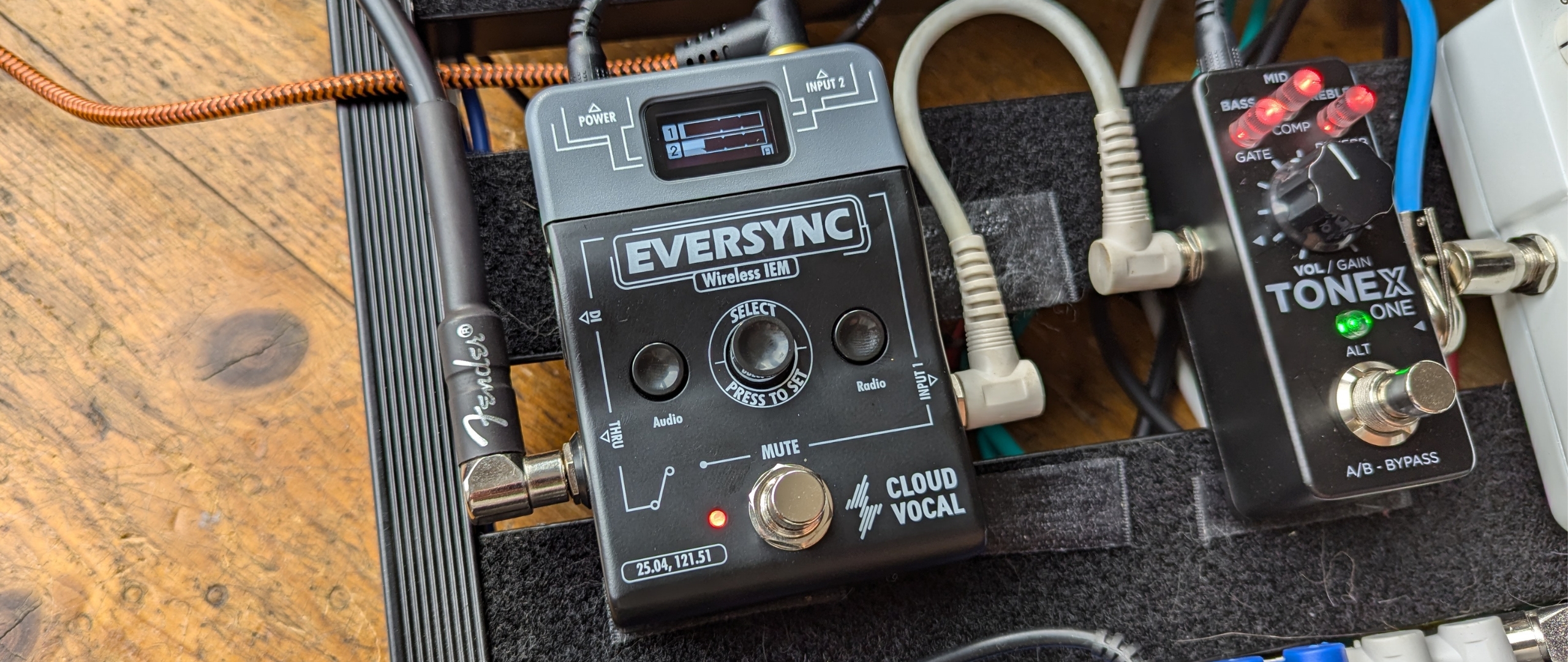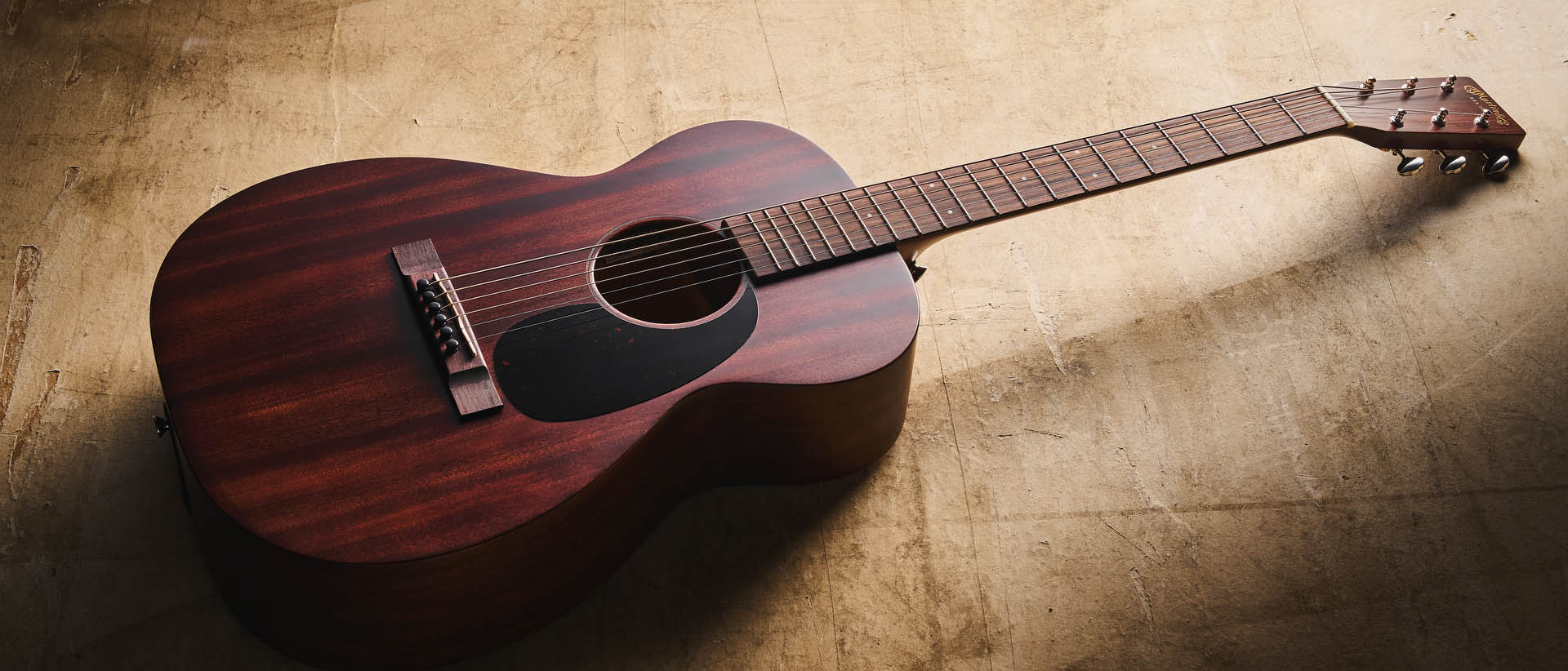Guitar World Verdict
For live guitar players, the combination of usability and price makes the Cloudvocal EverSync Wireless IEM a great option for monitoring on stage. Pedalboard-friendly and easy to set up, if you’re after a first in-ear-monitoring system you could do a lot worse.
Pros
- +
Flexible setup options
- +
Easy to use
- +
Pedalboard sized-transmitter
- +
Compact and lightweight receiver
Cons
- -
Not stereo
- -
No mute button on receiver
You can trust Guitar World
As a live guitarist, using in-ear-monitors (IEMs) can be a total game-changer. When you’re no longer reliant on often poor stage monitoring, an in-ear monitoring system can unlock a much better performance for you and your bandmates, helping take your live sound to the next level. If you’re integrating electronic sounds alongside your guitar and amp then monitoring is that much more important, with the potential to make or break your live show.
Designed specifically for guitar players, the Cloudvocal EverSync Wireless IEM is a relatively affordable in-ear monitor system when compared to the offerings from some of the bigger names out there. In terms of guitarist-specific in-ear monitor systems, there isn’t much choice out there, particularly at this price point. It makes the EverSync quite a unique prospect in that regard, well worth some consideration if you don’t want to go the traditional route.
Cloudvocal EverSync Wireless IEM review: Features

Opening the box it consists of a transmitter small enough to fit on your pedalboard and a lightweight receiver with a handy belt clip. There are no earphones included so you’ll need your own pair. There’s a 9V power supply and a USB-C cable, both of which can be used to power the transmitter.
Taking everything out of the box I was taken aback at how light and small the receiver is. Easily small enough to fit in my averagely-sized hands, it’s made out of hard plastic and certainly feels sturdy enough to deal with regular live use. On the top, you get a 3.5mm output for your earphones, a pairing button, and a small volume knob. The side panel features a power button alongside a USB-C port for charging. Finally, a large button on the front panel acts as a limiter for the signal going to your in-ears.
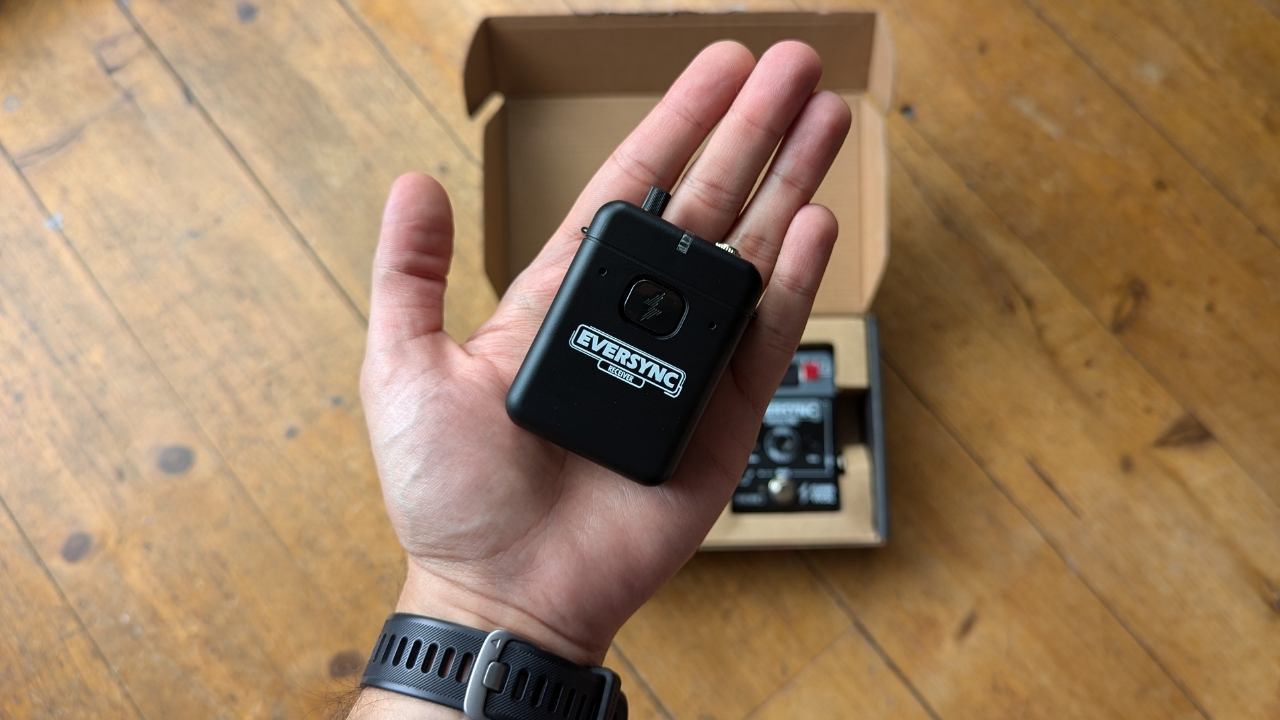
The transmitter is a larger and heavier unit, very much stompbox-sized, albeit a lot slimmer in terms of thickness. On the front panel, there’s a small display, a rotary button for changing settings, and two buttons for selecting and changing channels. In terms of connectivity, you have a single 1/4-inch input on the right-hand side, with the left featuring an XLR DI out, and a 1/4-inch ‘thru’. The top panel features a second input stage, with both 1/4-inch and 3.5mm as well as a 9VDC power input and a USB-C for powering the device.
Looking at the specifications, the system runs on the 5.8GHz band which is unusual to see. At this price most IEMs I’ve come across operate on the 2.4GHz band, which is a nice choice to prevent it from interfering with your wireless guitar system. It also boasts a less than 5ms latency, which should mean a lag that’s unnoticeable to the human ear. You can also use up to four receivers with a single transmitter, great if you want to equip the whole band or just pair up with your drummer.
Cloudvocal EverSync Wireless IEM review: Performance

Getting everything out of the box and plugged in, I mounted the EverSync transmitter onto my pedalboard, feeding input 1 a signal that went via my pedalboard into an amp simulator, and plugging the ‘thru’ output into my studio monitors. . Next, I plugged in a looper pedal with pre-loaded beats and loops to jam along with into input 2, and got out my trusty Telecaster to start some drop-d riffing.
All the latest guitar news, interviews, lessons, reviews, deals and more, direct to your inbox!
Pairing the receiver caused the first hiccup, but only because it wasn’t immediately clear that pairing had succeeded. Despite being connected the ‘pairing’ notification didn’t disappear from the screen on the transmitter, and it was only when I upped the volume that I realized everything was working perfectly. Hitting go on my looper I instantly got a signal and proceeded to start playing along.
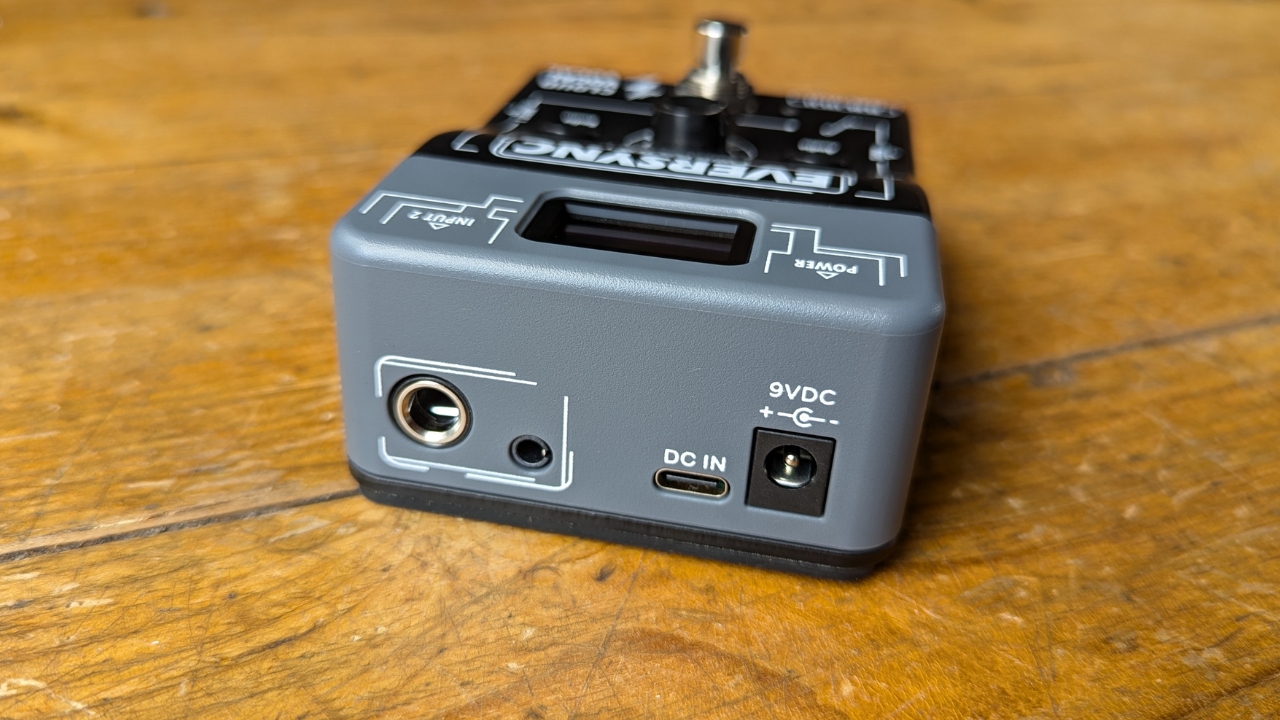
The guitar was immediately too loud for my set of Thomann's t.bone EP4 earphones, so I stopped everything and quickly adjusted the levels via the audio button on the transmitter. Making this adjustment was a breeze and I was quickly back up and running with my loop pedal. Both signals are shown on the display of the unit, giving you a visual indicator of your sound too.
The audio from the in-ears wasn’t spectacular, but it was certainly more than usable. The lack of true stereo hurts the quality a little but considering the price point, it’s definitely not a deal breaker for me. I played for a couple of hours and the receiver only dropped one of its battery light indicators, implying that the 8-hour battery life claim is a true one. I also tested the signal strength by wandering around my house while playing, finding no interference or signal drop occurring.
Cloudvocal EverSync Wireless IEM review: Usability
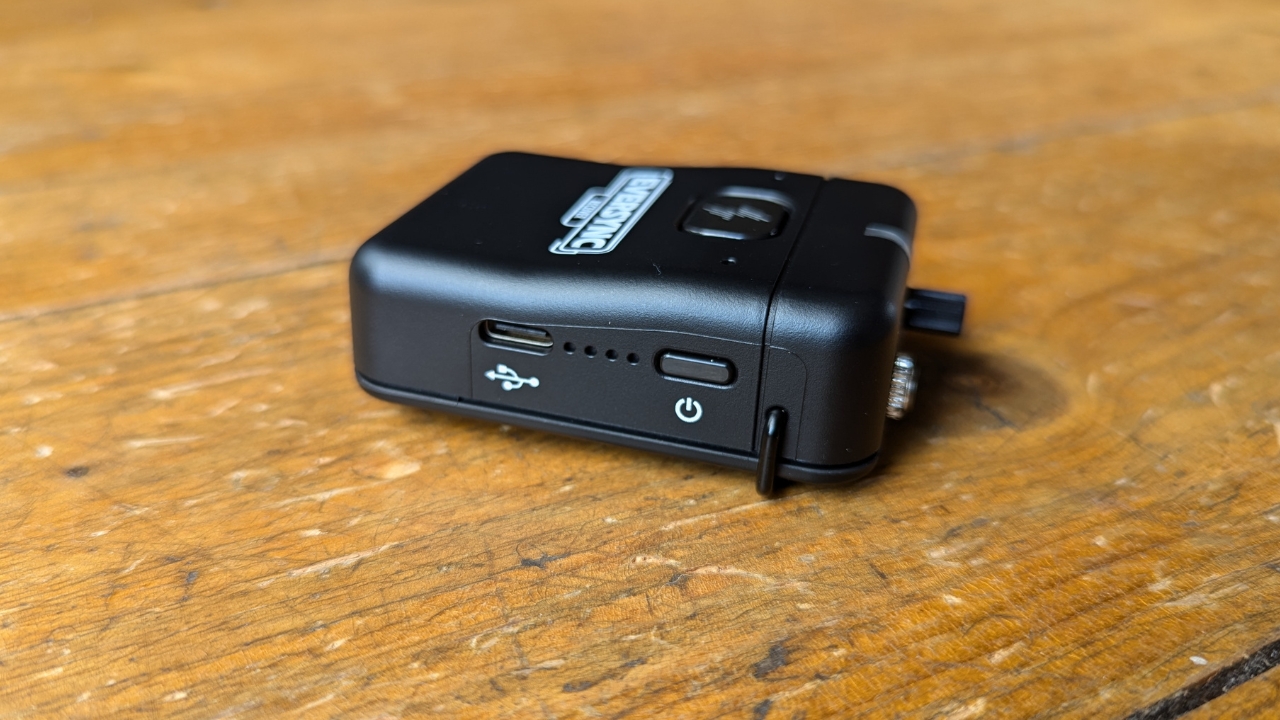
There’s a lot of potential for this unit if you’re a live guitarist thanks to the multiple setup options. You can receive two different signals thanks to the multiple inputs, for example, you could blend the front-of-house signal with a direct guitar tone, or hear your drummer’s sample pad if you’re all playing to a click track. There’s no XLR in, which could prove problematic for some use cases, say if you wanted to hear your vocals, although it's rare you aren’t able to convert an XLR into a 1/4-inch jack input.
I can see it being a handy addition to your pedalboard if you're playing shows with poor monitoring or, as I’ve encountered sometimes, no monitoring at all. Even if you don’t necessarily need to hear anything other than your own guitar tone, the EverSync could certainly be a huge benefit to live guitar players.
On the transmitter, a mute button lets you kill all sound via the thru or DI outputs without disturbing what you hear in your in-ears. Disappointingly however there’s not a similar button on the receiver pack itself. Sometimes when playing live you’ll want to kill the sound of your own feed, and here you only have a ‘limiter’ button that drops the signal level slightly.
Cloudvocal EverSync Wireless IEM review: Verdict
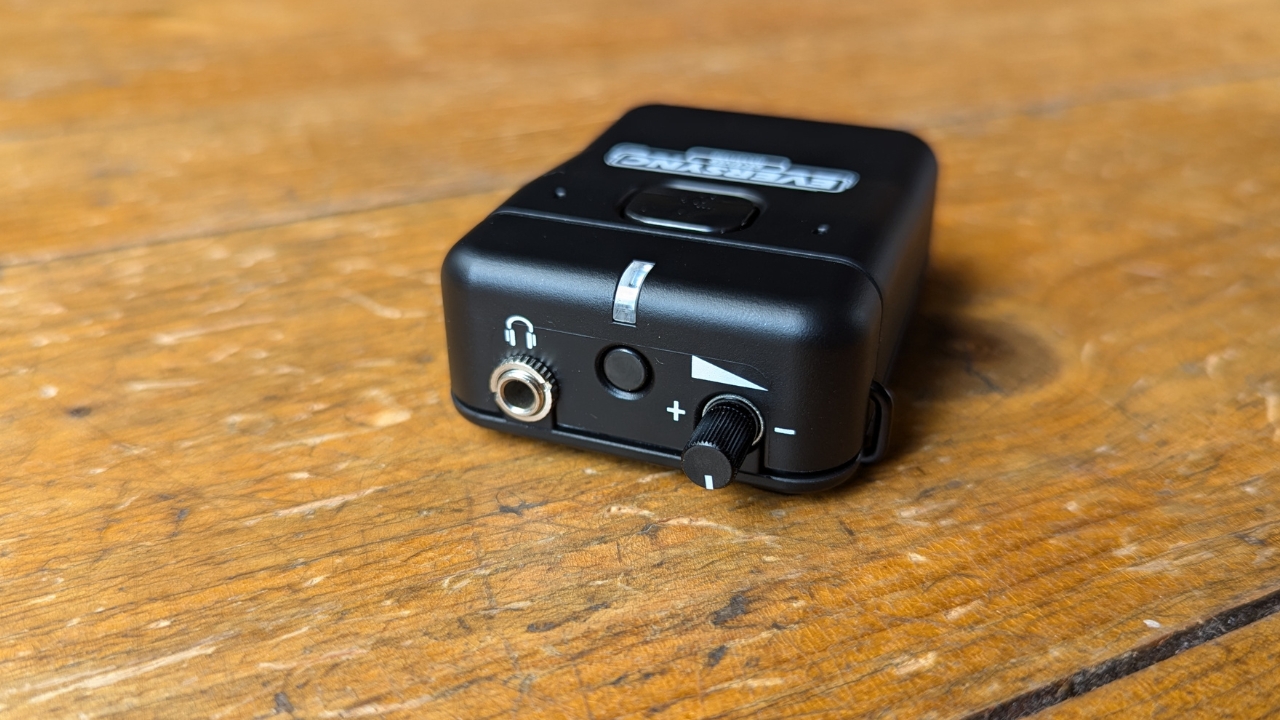
Overall I’m really quite impressed with the Cloudvocal EverSync Wireless IEM. As a guitar player, I can totally see the appeal of always getting your own feed, even if your band isn’t on IEMs. Small enough to fit on your pedalboard as well as reasonably priced, if you’re a regularly gigging guitarist this may just be the monitoring solution you’ve been looking for.
Cloudvocal EverSync Wireless IEM review: Specs
- BANDWIDTH: 5.8 GHz
- SAMPLE RATE: 24bit/48KHz
- LATENCY: <5ms
- FREQUENCY RESPONSE: 20Hz-20KHz
- CHANNELS: 4
- OPERATING RANGE: 30m (100ft)
- TRANSMITTER POWER: USB-C / DC9V 200mA
- RECEIVER BATTERY LIFE: 8 hours
- CONTACT: Cloudvocal

Matt is a Junior Deals Writer here at Guitar World. He regularly tests and reviews music gear with a focus on guitars, amps, pedals, modelers, and pretty much anything else guitar-related. Matt worked in music retail for 5 years at Dawsons Music and Northwest Guitars and has written for various music sites including MusicRadar, Guitar Player, Guitar.com, Ultimate Guitar, and Thomann’s t.blog. A regularly gigging guitarist with over 20 years of experience playing live and writing and recording in bands, he's performed everything from jazz to djent, gigging all over the country in more dingy venues than you can shake a drop-tuned guitar at. When not writing articles for Guitar World, you'll find him making a racket with northern noise punks Never Better.
